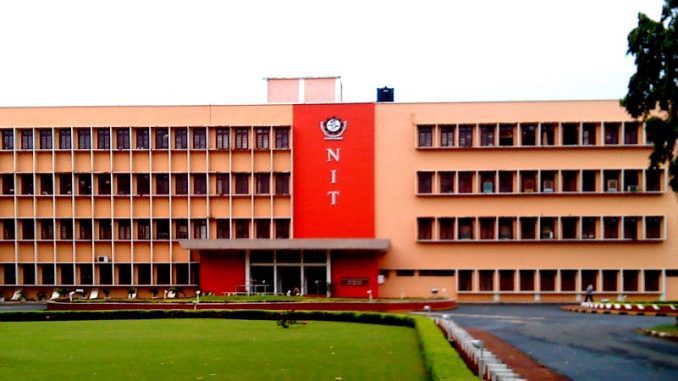
By Basant Kumar Mohanty
New Delhi: The National Institute of Technology (NIT) Rourkela is examining a proposal to reserve 50 per cent of its seats for girls, a plan which, if implemented, will be a first-of-its-kind effort by a tech school to ensure gender parity.
The proposal came up at a meeting of the board of governors, the highest decision-making body of the NIT, in Mumbai last week where a vision plan for growth and improvement of ranking was discussed.
Pramath Raj Sinha, an educationist and entrepreneur, made a presentation suggesting a 50 per cent quota for girl students at the institute to make it a “girls-only NIT”, a source told The Telegraph.
At present, girls constitute 14 per cent of the students of the NITs. The human resource development ministry has asked these institutions to create additional seats to increase the strength of girl students to 20 per cent by 2020.
“The board of governors is considering the feasibility of the proposal, keeping in mind the NIT Act and statute,” an NIT Rourkela official said.
The stipulated quota for Other Backward Classes (27 per cent), Scheduled Castes (15 per cent) and Scheduled Tribes (7.5 per cent) cannot be altered.
Asked how the NIT would reserve 50 per cent of the seats for girls without touching the other quotas, Sinha refused to comment. “I want to respect the confidentiality of the issue. I do not want to comment,” he said.
Reservation expert P.S. Krishnan said seats could be set aside for girls even if there is no such law.
“It is possible if the institute creates a 50 per cent sub-quota for girls within every reserved category, including the SC, ST and the OBC, and also the unreserved section. If there are not enough women candidates, the vacant seats should be filled up with meritorious male candidates,” Krishnan said.
Former NIT Rourkela director Sunil Sarangi disapproved of the proposal.
“There is no rationale in giving quota seats to women who may do better in other disciplines or have been denied berths in lesser institutions. Social justice should aim at giving opportunity to everybody to enhance productivity. Aptitude should be the criterion for selection,” Sarangi said.
Sinha’s presentation also spoke of offering non-specialised general engineering programmes where the students would not have any core subject but study a mix of the various streams of engineering.
Sarangi appeared critical of this proposal too, saying those studying such courses would find it difficult to get jobs. “Have they done any study to find out if any employer will hire graduates from non-specialised courses?” Sarangi asked.
The presentation also suggested that NIT Rourkela ask students to take up some courses from the liberal arts to help them form a view of societal issues.
Sinha’s presentation spoke about leveraging social media and launching targeted campaigns and aggressive outreach programmes for school students and their guardians to better the perception about the institute in western Odisha.
NIT Rourkela ranked 12th among engineering colleges in the HRD ministry’s National Institution Ranking Framework this year. It fared better than several IITs started in the past 10 years.
Source: The Telegraph

Leave a Reply